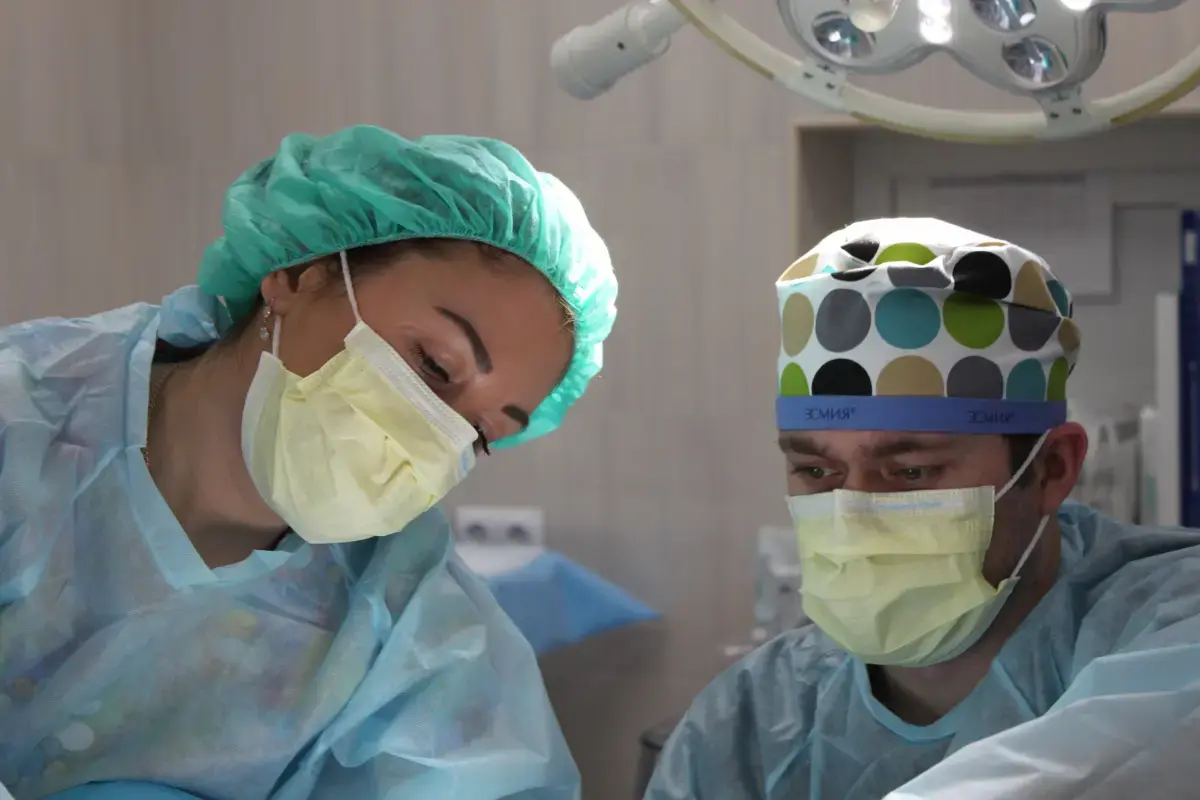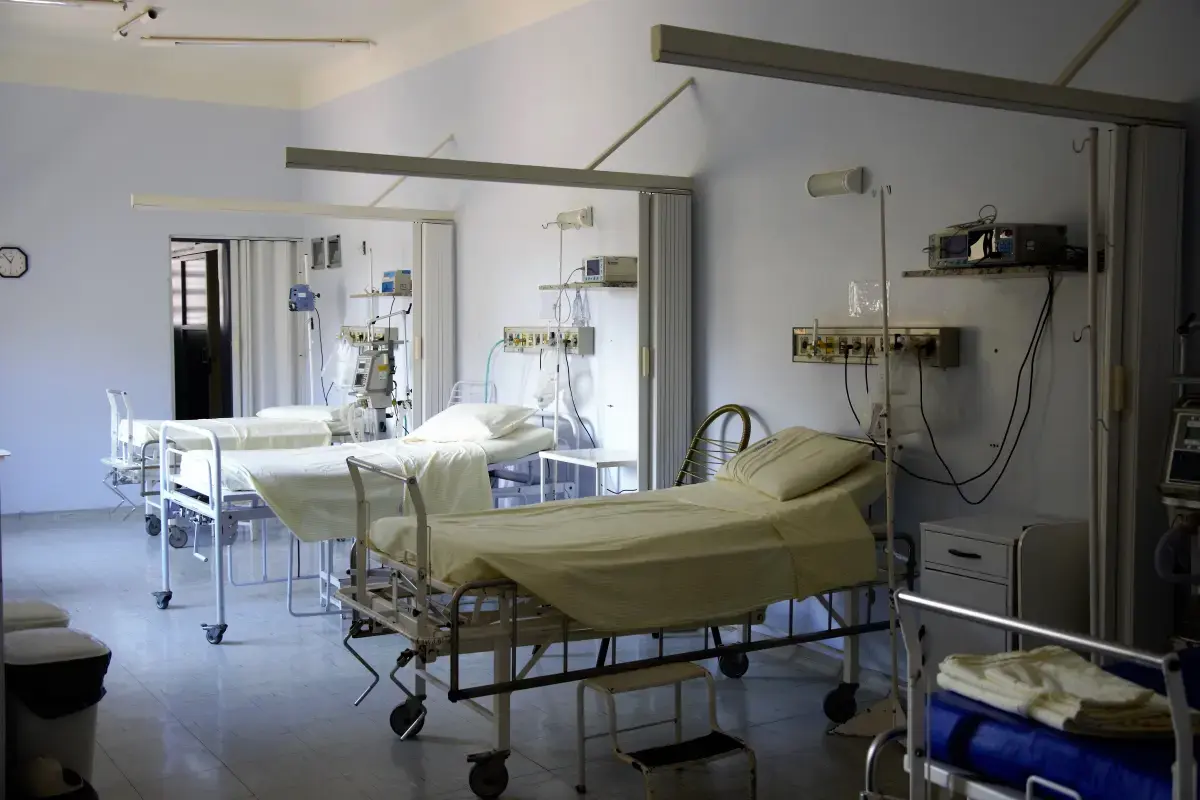
Medical Worker Job Description
What is a Medical Worker Professional?
A medical worker is a person who provides medical care to patients in a hospital, clinic, or other healthcare setting. Medical workers can be doctors, nurses, surgeons, or any other type of healthcare provider. They are responsible for diagnosing and treating patients, and providing them with the necessary care and treatment. Medical workers are trained to provide care for patients with a variety of medical conditions. They must be able to identify the symptoms of a disease or injury, and determine the best course of treatment.

What does a Medical Worker Expert do?
They also need to be able to provide emotional support to patients and their families. Medical workers typically work long hours, and may be on call for emergencies. They must be able to handle stressful situations and make quick decisions. The job of a medical worker is important and demanding. It requires a dedication to helping others, and a commitment to providing the best possible care.

What are the Skills of a Medical Worker?
A medical worker is a professional who provides care for patients in a hospital or other healthcare setting. They may be registered nurses, licensed practical nurses, or other medical professionals such as doctors, pharmacists, or surgeons. Medical workers are responsible for the well-being of their patients and must be able to provide both physical and emotional support. Physical skills: Medical workers need to have excellent physical stamina as they are often on their feet for long periods of time. They must be able to lift and move patients, as well as be able to stand for long periods of time. They should also have good hand-eye coordination as they often have to administer injections or insert catheters. Emotional skills: Medical workers need to be able to deal with the emotional stress that comes with the job. They must be able to remain calm in difficult and sometimes chaotic situations. They must be able to empathize with patients and their families, as well as be able to provide support during difficult times. Communication skills: Medical workers need to be able to effectively communicate with patients, families, and other members of the healthcare team. They must be able to explain procedures and diagnoses in a way that is easy to understand. They must also be able to listen to patients and families in order to provide the best possible care.

What makes an Expert Medical Worker?
Critical thinking skills: Medical workers need to be able to think critically in order to make quick decisions in emergency situations. They must be able to assess a situation and make decisions based on the best course of action. They must also be able to recognize when a situation is beyond their scope of practice and seek help from more experienced medical professionals. Education and training: Medical workers must have a minimum of a high school diploma, although many positions require further education and training. Registered nurses must have at least an associate’s degree in nursing, while licensed practical nurses must have a diploma or certificate in practical nursing. Doctors must have a medical degree from an accredited medical school. Pharmacists must have a Doctor of Pharmacy degree from an accredited pharmacy school. Surgeons must have a medical degree and complete a residency in surgery.

What level of Experience & Qualifications are required to be a Medical Worker?
Industry experience: Minimum of 5 years medical professional experience in a relevant field, such as nursing or medical technology. • Training: Completion of an appropriate training program and certification from a recognized institution. This may include specialized courses in patient care, pharmacology, laboratory techniques, imaging technologies, health administration, etc., depending on the type of profession desired. • Qualifications: Professional qualifications for specific fields such as Registered Nurse (RN), Licensed Practical Nurse (LPN) or Certified Medical Assistant (CMA). Additional certifications are often required for advanced positions such as nurse practitioner or physician assistant. • Education: A minimum of an associates degree is typically required to become a medical professional; however some roles may require higher degrees such as bachelor’s degrees or master’s degrees in related fields like healthcare management and policy making.

What is the Salary of a Medical Worker?
Junior Level: A medical professional at the junior level typically earns a salary of between $30,000 and $50,000 per year. This range is based on experience and education level. At this level, medical professionals often work in clinical settings such as hospitals or physician’s offices, performing basic patient care duties such as taking vital signs or assisting with exams. They may also be responsible for providing administrative support to physicians or other health care staff members. Mid-Level: Salaries for mid-level medical professionals can vary significantly depending on the type of job they are doing and their qualifications but generally range from about $50,000 to $80,000 per year. These positions include registered nurses (RNs), licensed practical nurses (LPNs), pharmacists, radiologists and laboratory technicians who have acquired more specialized skills than those found at the junior level. Professionals in these roles are expected to have advanced knowledge of healthcare practices that enable them to provide better quality patient care services than entry-level employees can offer. Senior Level: Senior-level medical professionals earn salaries ranging from approximately $80,000 up to six figures annually depending upon their specific role within the field and years of experience they possess in it. Doctors—including general practitioners (GPs) as well as specialists—are among those earning higher incomes at this tier while experienced RNs may also find themselves commanding larger paychecks due largely to increased responsibilities associated with seniority levels within organizations where they work . Other senior positions include emergency room directors; operating room supervisors; chief nursing officers; hospital administrators; nurse practitioners; physical therapists; occupational therapists; speech language pathologists; dieticians/ nutritionists etc., all commanding relatively high salaries compared to lower ranking personnel

What are the Working Conditions for a Medical Worker?
The general working conditions for a medical professional may vary depending on the specific job, but they typically include long hours and irregular shifts. Medical professionals may be required to work nights, weekends, and holidays in order to meet patient needs or respond to emergency situations. They must also possess excellent communication skills as they will often interact with patients, their families and other healthcare providers throughout the day. Medical professionals are usually expected to follow strict safety guidelines when performing procedures or administering medications. This can involve wearing protective clothing such as gloves or masks while caring for patients, sterilizing equipment before use and disposing of any hazardous materials properly. Additionally, medical professionals must keep accurate records of all treatments given so that it is easy for them to review later if needed. In addition to their primary duties related directly with patient care, many medical professionals have administrative tasks such as filing paperwork or entering data into electronic systems which take up part of their time each day too.

What are the roles and responsibilities of a Medical Worker?
Providing direct patient care
Performing diagnostic tests
Interpreting test results
Counseling patients on treatment options
Developing and implementing treatment plans
Coordinating patient care with other healthcare professionals
Monitoring patient progress and response to treatment
modifying treatment plans as needed
educating patients and their families about health and wellness
providing emotional support to patients and their families
serving as a patient advocate
coordinating discharge planning
providing referrals to community resources
maintaining patient medical records
coding and billing for patient care services
ordering and interpreting diagnostic tests
performing minor medical procedures
prescribing medications
providing preventive care services
participating in research studies

Where can I find Medical Worker jobs?
- Create a profile on gigexchange and promote your Medical Worker skills to advertise you are Open to New Work Opportunities
- Ensure your Resume (or CV), or online work profile is up to date and represents your skills and experience. Ensure your reputation reflects your ability & attitude.
- Apply for Medical Worker Jobs advertised on gigexchange.
- Practise Medical Worker interview techniques to ensure you represent your personality and ability succinctly and confidently.
- Accept the job offer if the salary meets your expectations and the employer mission and purpose reflects your core values.
Jobs
What are the best job boards for Medical jobs?

How can I hire Medical Worker staff online for my business?
The best job board for recruiting Medical Worker experts is gigexchange.com. Advertise full-time, part-time or contract jobs to find, hire & recruit trusted, experienced and talented Medical Worker candidates near you.

Are Medical Worker roles in demand in 2026?
Medical Worker experts are still in high demand in 2026. If you are an experienced Medical Worker or looking to train and become one. The job market is looking strong for Medical Worker jobs near me.